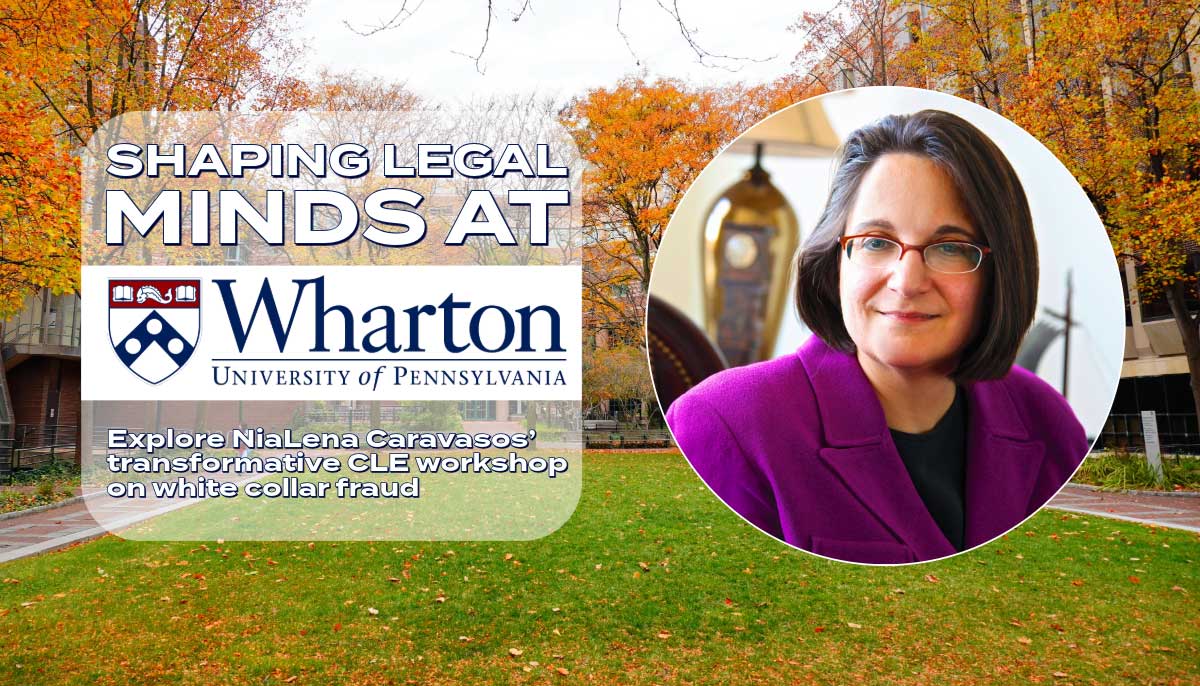
NiaLena Caravasos, a distinguished Philadelphia-based attorney specializing in federal criminal defense and white-collar crime, recently returned to her alma mater, The Wharton School at the University of Pennsylvania. Her engagement wasn’t just a routine visit; it was a significant occasion where she took the helm as a Continuing Legal Education (CLE) instructor, focusing on the intricacies of white-collar fraud.
Interactive Learning with Real-World Applications
The session was designed for an elite group of students enrolled in a joint J.D. and MBA program, who are not strangers to the high stakes of the business world. NiaLena’s lecture was structured around a highly interactive and dynamic approach where students, who have held prominent positions in the business sector, were plunged into real-life scenarios of white-collar fraud within the financial industry.
Role-Playing: A Method to Master Strategic Legal Thinking
The class was divided into groups, each representing different parties involved in hypothetical fraud cases. This role-playing was not just a learning exercise; it was a deep dive into the strategic legal maneuvers necessary in negotiations and trials. Students debated various strategies to determine the most effective legal responses based on the specific circumstances of the case. Understanding these dynamics is crucial not only in a classroom setting but also in real-world legal battles where strategic defense plays a critical role in achieving favorable outcomes. For further insights into successful defense strategies in white collar crime, explore detailed examples of acquittals and favorable outcomes in complex corporate and financial misconduct on our white-collar crime case successes page.
The Balancing Act: Cost-Benefit Analyses and Ethical Considerations
One of the core elements of NiaLena’s teaching centered on the cost-benefit analysis—a critical tool in deciding the best course of action in legal and business decisions. This analysis was not only about the immediate outcomes but also considered the long-term implications, such as setting precedents and the global impact on the industry.
Ethics and Transparency: Cornerstones of Financial Integrity
A strong emphasis was also placed on ethical considerations and the necessity for transparency within the financial sector. Caravasos highlighted the importance of these principles as foundational to maintaining integrity and trust in financial practices, which are often undermined by fraudulent activities.
Conclusion: Shaping Future Leaders
Through this engaging session, NiaLena Caravasos not only imparted valuable legal knowledge but also equipped these future leaders with the skills to navigate and mitigate complex legal and ethical challenges in their careers. This simulated real-world course at Wharton thus served as a crucial platform for bridging theoretical knowledge with practical, real-world application, ensuring that the next generation of legal and business professionals is well-prepared to uphold and advance the principles of justice and integrity in the business world. For more insights into NiaLena Caravasos’ innovative approaches in federal criminal defense, explore how she is revolutionizing plea agreement strategies in our detailed analysis.












